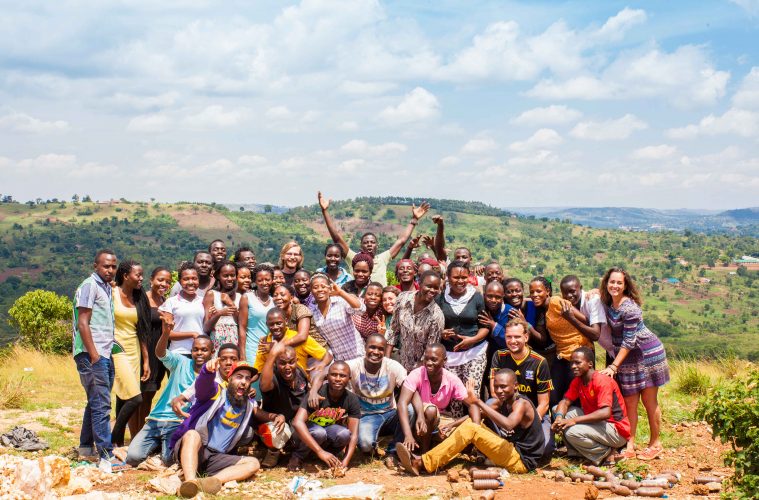A long the red dirt roads that lead to The Social Innovation Academy (SINA), you will find children playing, cows grazing and motorbikes (boda boda in Luganda, the native Ugandan language) beeping at pedestrians on their way to the next customer. For most people, the road to SINA is an unlikely one: traversing life-altering obstacles and tragedies to finally find an oasis of social innovation and entrepreneurship.
Many of the SINA students have leveraged their unique background and history to create new businesses and organizations aiming to stimulate innovation that produce successful, driven and autonomous entrepreneurs. Permeating throughout the Academy, and the projects within, is a spirit of peace and inclusion.
Recently, in an attempt to foster a more inclusive and interactive community, leaders at SINA created a family system where individual scholars are placed in a family, under a family name, and share meals and engage in other activities on campus. During lunch and dinner, families sit and eat together, share ideas and events from the day. The importance of instilling a sense of family and connectivity is why SINA has been successful in its growth and development as an organization. The emphasis that is put on inclusion can be seen infiltrating the scholars and projects taking part in the SINA experience.
SINA scholars are dedicated to bridge gaps of misunderstanding that will bring about a more inclusive and accepting society.
For example, The Ring, a social enterprise born at SINA, intends to shed light on the unique plight of albinos within the refugee settlements in Uganda. Their goal is to raise awareness in regards to the truth about albinism while aiming to shatter myths associated with the genetic abnormality. This is one of many examples of how the SINA scholars are dedicated to bridge gaps of misunderstanding that will bring about a more inclusive and accepting society.
My interactions with SINA scholars has been transformative, providing a unique perspective on what it means to be human. There is one interaction in particular that I would like to share. It was my third or fourth day at SINA and I was sitting at the desk in my room reading up on holacracy (organizational structure implemented at SINA), when I heard a knock at the door. A SINA scholar asked if I had time to chat and to get to know one another. I agreed and we found our places within the space and began to share. I spoke about my life – my childhood in the United States, the time I spent in Georgia (the country!), and my recent studies at the United Nations’ Mandated University for Peace in Costa Rica.
The Social Innovation Academy is providing a platform for marginalized youths to use their unique histories to create and innovate for themselves and, potentially, for generations to come.
After answering a few questions, I began to listen to his journey to SINA. The story was filled with tragedy and heartache – navigating situations and spaces that few people will ever experience. After his beautiful and inspiring lamentation, the scholar went on to explain how he was taking this life and his experiences and channeling them into creative outlets and processes, like for instance writing, music, project proposals, etc. The wisdom, self-awareness and understanding it takes from an early-twenty something young adult to harness this energy and emotion into positive, creative outlets was truly inspiring. This was just one of many interactions with SINA scholars that would humble and ground me on a regular basis.
I have been blessed with opportunities throughout my life that have provided a plethora of different perspectives. Interacting with different cultures, peoples and work environments has given me a level of humility and understanding that is uniquely mine. My time with SINA is another one of these experiences that shape and shift the way I perceive and interact with the world around me. In an ever increasingly globalized world, understanding of the vast array of ideas and perspectives expands one’s ability to appreciate societal nuances while providing a sense of oneness and connectivity that goes beyond state borders and cultural demarcation.
The Social Innovation Academy is providing a platform for marginalized youths to use their unique histories to create and innovate for themselves and, potentially, for generations to come.

